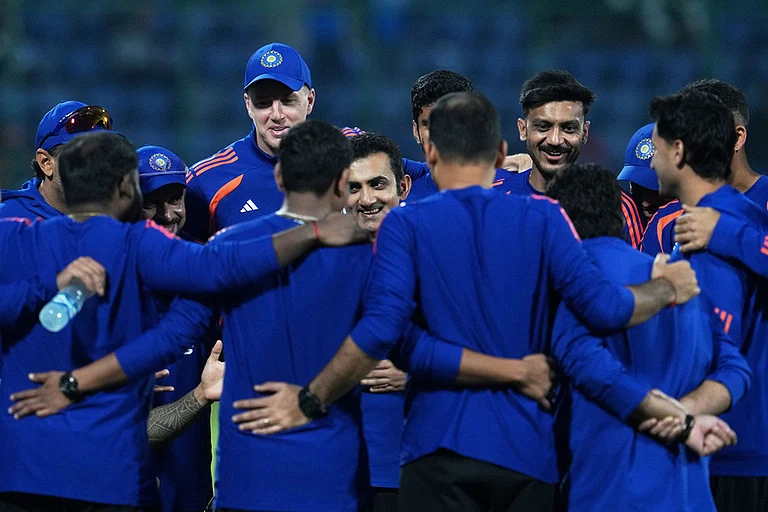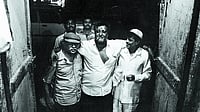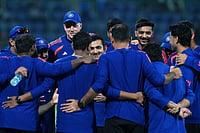Most children walk to the school from the nearest slum, while others from in and around Adyar use free bus passes. Nobody is dropped by scooters or cars. Nor do they lug a heavy load of books. Lunch is provided on the campus (though students complain it is bland). In fact, even if you miss breakfast, you can start the day with kanji (gruel), provided soon after the morning assembly. Most students—sons and daughters of fisherfolk, tailors, coolies, flower-sellers, domestic helps—are first-generation learners.
There are many students who earn as they learn. Says L. Veeramani, who sells flowers at Elliot’s Beach in the evenings: "I sometimes make Rs 100 in a day." Many others double up as newspaper and milk vendors. Rajesh, a Class-VIII student, begins his day at 5 am, supplying milk to the nearby households before rushing off to his second "shift"—cleaning cars. "Most girls here work, but are too embarrassed to admit it. In fact, 60 per cent of students here do some job or the other. We make up to Rs 300 per month and it is very helpful for the family," says M. Moorthy, whose father works as a watchman at the nearby railway reservation complex. "We life in the servants quarters of a flat and our owners make me book tickets during the festival season when you have to stand in the queue by 2 am," he adds.
But spending time in the school is something most students look forward to. "It is here that we are really relaxed and learn a lot," says Babu, who cleans cars and waters the garden to earn an extra Rs 175 every month. The hard life outside school makes them respect their alma mater even more. It has only made them even more resolute to fight the system. Says Babu: "They make me clean the car, but keep the cloth I use in a separate corner. They don’t touch it. When I grow up, I’ll learn some skill-based labour and work for myself." Adds Sudhakar, a class IX student: "We know the importance of education for a better life." He dreams of becoming a police inspector.
But running a free school does not mean standards are compromised here. Says Lakshmi Suryanarayanan, the principal: "We don’t have more than 35 students in each class. And 75 per cent of our teachers are computer-literate. In admissions to middle school, we give preference to girl children." Besides free education, the school also gives free textbooks and uniforms, since most kids are from Dalit and MBC families. In 1988, a craft centre was started to provide skill-based education—carpentry, screen-printing, gardening, and tailoring, and even pickle-making.
The school has devised programmes to address children with special needs. "We have three mag (mixed-age-group) sections where students who have difficulty performing at their age levels are pooled together," says Suryanarayanan. And in spite of the fact that the teachers are poorly paid (Rs 1,800 per month), after the Theosophical Society, which manages the school, preferred to step out of the government shadow in 1990, there is no dearth of enthusiasm among them for the cause. Says Dr Aruna Rathnam, who has been associated with the Olcott school for more than a decade now: "Mere formal education does not equip children. You need to supplement it with social and cultural capital. Skills in networking and socialising in a big bad world are as important. When the school was managed by the government, the society could not control appointments. So you had teachers who believed in corporal punishment."
The school can be contacted at: Lakshmi Suryanarayanan, Olcott Memorial High School, Opp Rajaji Bhavan, Besant Nagar, Chennai; Phone: 044-4915826.























